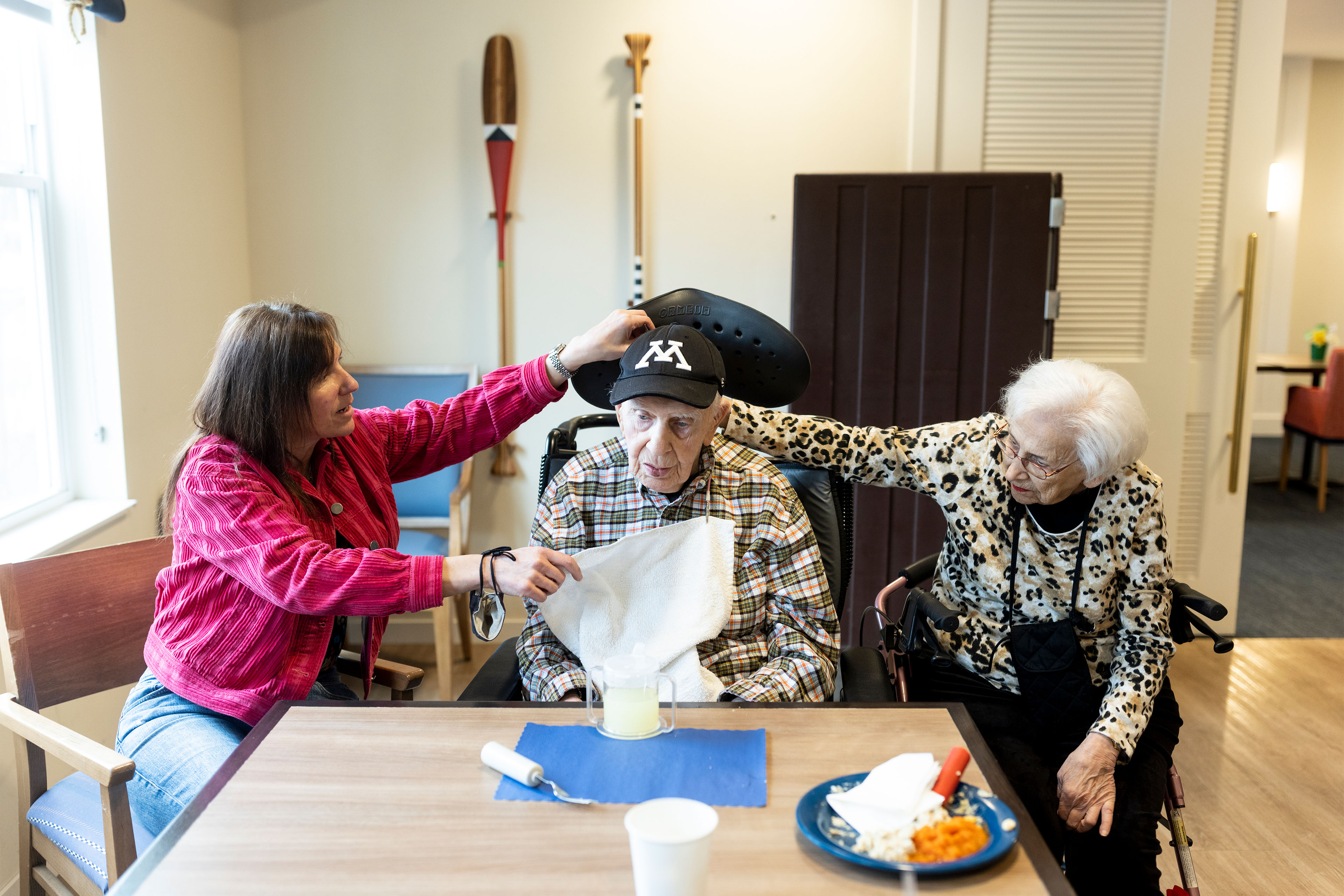Locating the Right Assisted Living Remedy for Tailored Memory Care Programs
The process of selecting an ideal assisted living solution for tailored memory treatment programs calls for a nuanced understanding of individual requirements, specifically as they relate to cognitive problems such as Alzheimer's and mental deterioration. As we explore these elements, the inquiry stays: what truly constitutes an optimum setting for memory care?
Recognizing Memory Treatment Demands
Recognizing the unique memory treatment needs of people with cognitive disabilities is vital for providing effective assistance and improving quality of life. Cognitive disabilities, including Alzheimer's condition and various other forms of mental deterioration, significantly impact a person's capability to process details, communicate, and preserve freedom. Because of this, customized methods are important in addressing these difficulties.
People with memory problems usually experience complication, mood fluctuations, and disorientation, demanding an encouraging and structured setting. Memory care programs should concentrate on creating a risk-free room that motivates social interaction, cognitive engagement, and emotional wellness. This can be accomplished with specialized tasks, such as memory games, art therapy, and reminiscence sessions, which promote cognitive stimulation and maintain individuality.

Examining Personnel Certifications
The credentials of employee in memory treatment programs are crucial to delivering premium support for individuals with cognitive problems. Evaluating staff credentials entails assessing both educational history and useful experience in geriatric treatment, specifically in memory-related problems such as Alzheimer's and various other forms of mental deterioration.
Look for team that possess relevant certifications, such as Qualified Dementia Expert (CDP) or specialized training in memory care. These qualifications indicate a dedication to recognizing the intricacies of cognitive decrease and effective interaction methods tailored to homeowners' one-of-a-kind requirements. Furthermore, ask about continuous training possibilities that personnel join, as continual education is essential in a field that progresses quickly with brand-new research study and best methods.
Moreover, examine the staff-to-resident ratio, as this straight impacts the high quality of care. A lower proportion enables even more individualized focus and engagement with residents. Additionally, observe team interactions with present citizens to determine their compassion, persistence, and ability to connect. Ultimately, a professional team is paramount in cultivating an environment that enhances the self-respect and quality of life for people in memory treatment.
Importance of Personalized Treatment Program
Individualized treatment strategies play an essential duty in boosting the wellness of individuals in memory treatment programs. These strategies are customized to the special needs, preferences, and capacities of each local, guaranteeing that care is both appropriate and reliable. By taking into consideration aspects such as medical background, cognitive feature, and individual interests, caregivers can develop a thorough technique that promotes dignity and respect for each and every individual.
The significance of individualized care strategies extends past basic care demands; they foster a feeling of protection and familiarity, which is important for individuals experiencing memory obstacles. By attending to specific behavior patterns and emotional actions, caregivers can execute methods that reduce anxiousness and improve total lifestyle.
Moreover, personalized treatment plans assist in far better communication among staff, member of the family, and healthcare suppliers. This collective method makes certain that everybody included is informed and straightened in their care efforts, leading to more consistent and reliable assistance. Ultimately, a well-structured tailored treatment plan is important in memory care programs, as it not just boosts daily living experiences yet likewise contributes to the lasting health and wellness and joy of residents.
Involving Tasks and Programs

Tasks such as art treatment, music sessions, and memory treatment provide opportunities for self-expression and cognitive engagement. These deliberate communications not only help in protecting cognitive capabilities however likewise offer psychological benefits, decreasing feelings of seclusion and anxiousness that typically accompany amnesia.
Additionally, structured group tasks can motivate socializing, which is crucial for psychological health and wellness - Assisted Living. Regular participation in games, workout classes, and community outings produces an ambience of sociability and support. Customized programs that take into consideration private passions and histories even more enhance involvement, making activities much more significant and efficient
Including innovation, such as memory video games and online fact experiences, can additionally offer to improve the every day lives of homeowners, supplying cutting-edge ways to boost cognitive feature. Inevitably, an emphasis on interesting tasks and programs is essential for promoting a helpful setting that advertises all natural wellness in memory care setups.

Assessing Area Environment
When reviewing an area environment for memory care programs, it is crucial to think about aspects that add to the total wellness and safety and security of locals. The physical layout of the area ought to prioritize ease of access and navigating, reducing barriers while offering clear signage and familiar landmarks. A secure atmosphere is vital to avoid locals from roaming, which can present safety and security risks.
In addition, the sensory facets of the neighborhood, such as illumination, color design, and sound levels, play a substantial function in improving comfort and reducing anxiety amongst residents. All-natural light and exterior rooms promote interaction with nature, cultivating a soothing atmosphere that can benefit cognitive function.
One more essential aspect her response is the schedule of trained personnel that comprehend the unique demands of people with memory disabilities. Personnel should be geared up to create a caring setting that motivates social interaction and emotional assistance.
Lastly, the sense of area and belonging is vital. Engaging family involvement and chances for locals to create connections with peers can dramatically boost their general high quality of life. Memory Care. By meticulously evaluating these aspects, families can make informed decisions regarding the most ideal memory treatment neighborhood for their enjoyed ones
Conclusion
Finally, picking an ideal assisted living remedy for tailored memory treatment programs demands a detailed assessment of private requirements and choices. Focusing on personnel certifications, individualized care strategies, engaging activities, and a supportive area atmosphere is vital for boosting the top quality of life for residents encountering cognitive obstacles. By addressing these critical aspects, families can ensure that their loved ones obtain the required support and like cultivate emotional health and cognitive excitement in a nurturing setup.